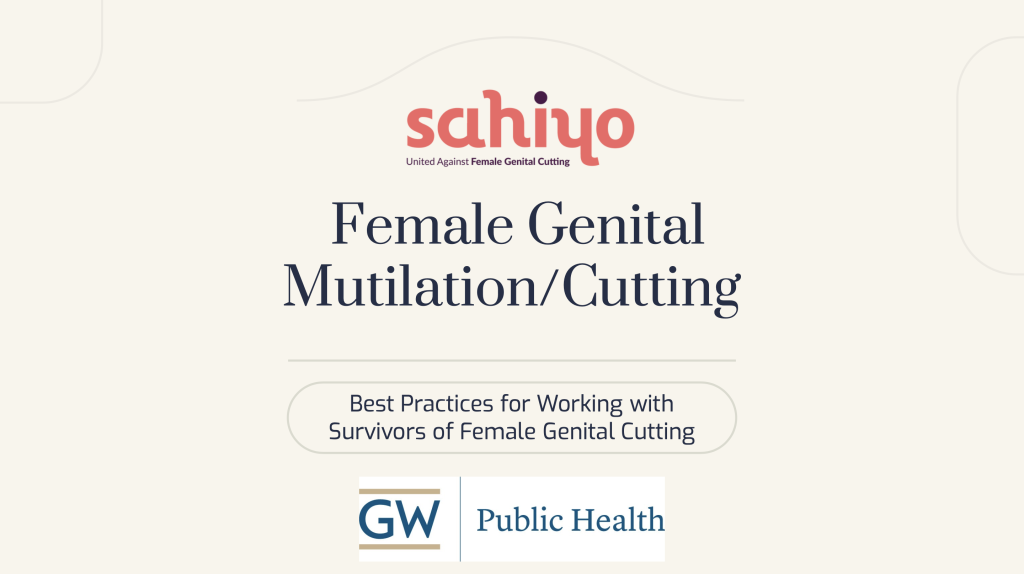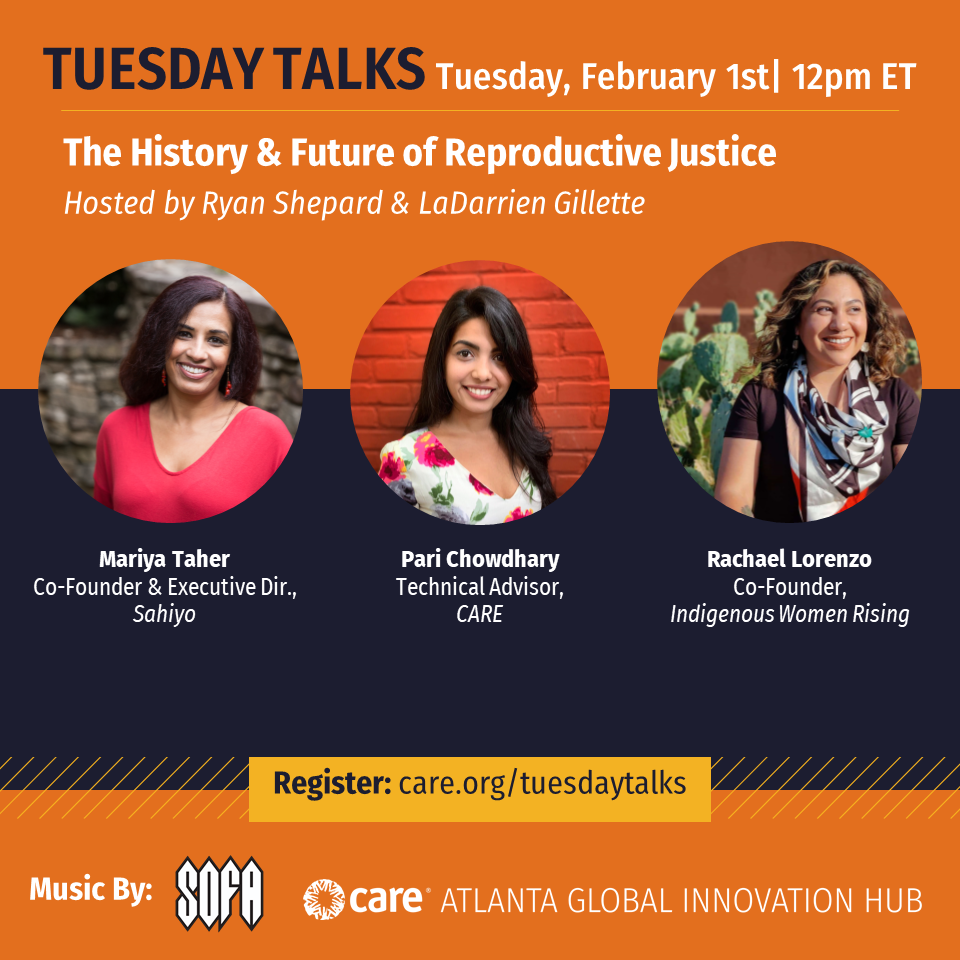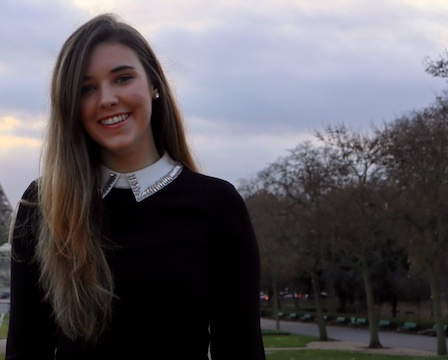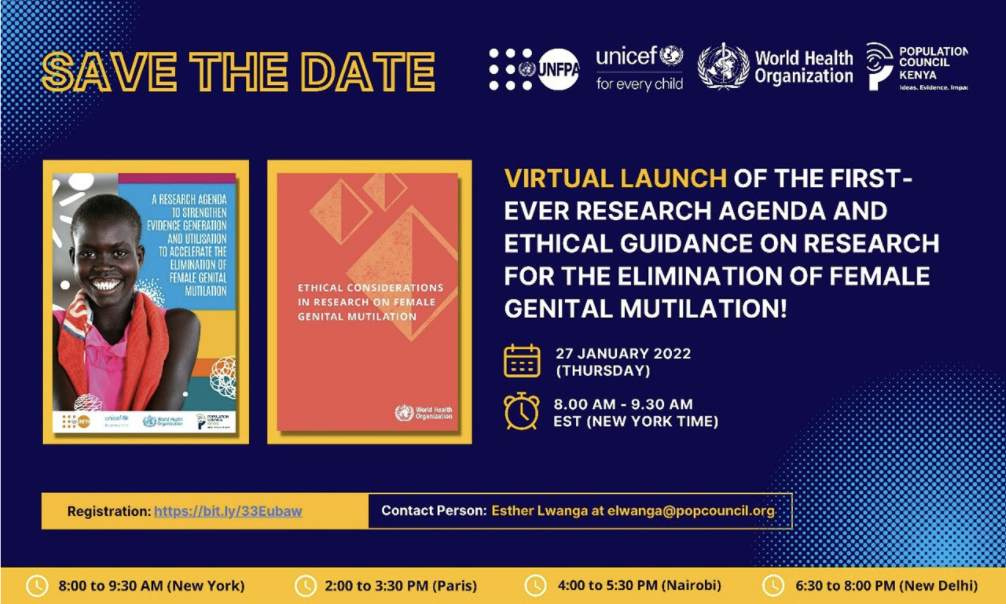Connecticut Trauma and Gender Learning Collaborative Training Part 2

On February 3rd, Sahiyo Co-Founder Mariya Taher joined Dr. Karen McDonnell from George Washington for our second training for the Connecticut Trauma and Gender Learning Collaborative (TAG). TAG is a collaboration between the Department of Mental Health and Addiction Services (DMHAS), the Connecticut Women’s Consortium (CWC), and other healthcare providers in Connecticut. TAG aims to promote best practices in trauma-informed, gender-responsive behavioral health care in Connecticut by providing training, consultation, and information to behavioral health agencies across the state. During this presentation, Sahiyo continued to explore FGM/C in the United States, and discussed various resources available for clinicians and other front-line professionals who may come in contact with women impacted by FGC, and are looking to better understand how to provide trauma-informed care while practicing cultural competence and sensitivity.
A CARE Tuesday Talk: The History & Future of Reproductive Justice

On February 1st, CARE Atlanta Global Innovation Hub hosted a webinar on reproductive rights and justice, and invited Sahiyo’s U.S. Executive Director Mariya Taher to speak about female genital cutting in the U.S. Pari Chowdhary (Technical Advisor, CARE) and Rachael Lorenzo (Cofunder, Indigenous Women Rising) also spoke on the panel. The speakers focused on highlighting how reproductive rights are linked to the social, political, and economic inequalities that affect a woman’s ability to access reproductive health care services. Core components of reproductive justice include equal access to affordable contraceptives and comprehensive sex education, as well as freedom from sexual violence. As the attacks on reproductive rights and justice continue to grow, it’s more important than ever to build and strengthen communities who will fight for unrestricted access to comprehensive reproductive health care. To learn more about CARE’s Tuesday Talks which were created to build bridges by exploring compelling topics, click here You can watch the full webinar here, or listen to the event on one of the following podcast streaming services: Apple Podcasts Google Podcasts Spotify Podcasts
Sahiyo volunteer spotlight: Programs intern Ellen Ince

Ellen obtained her Bachelor’s degree in European Studies, majoring in French. She is a current Human Rights Master’s student at University College Dublin. Her course examines the theoretical and legal underpinnings of human rights and the political pressures inherent within the field. With a passion for human rights, social justice, diplomacy, education and languages, Ellen enjoys working across cultures and working as part of a team. She has a particular interest in women’s rights and is curious about how the language of human rights is translated across cultures. Transforming attitudes concerning female genital cutting (FGC) in a way that is compatible with and sensitive to local culture is fundamental in achieving change. Ellen is looking forward to being part of Sahiyo’s mission to end FGC. What was your experience of learning about FGC for the first time like? I remember the shock I felt when I learnt about FGC for the first time. Up until this point I had never heard of female genital cutting. The practice was one which I couldn’t understand. I quickly searched for more information and became interested not only in learning more, but in how I could contribute to ending this practice. When and how did you first get involved with Sahiyo? I joined the Sahiyo team in January. I came across the organisation while carrying out research for a paper I was doing as part of my studies. I found the Sahiyo resources to be very useful and didn’t think twice about reaching out regarding internship opportunities! What does your work with Sahiyo involve? As a Program’s Intern my role includes attending meetings and keeping up to date with Sahiyo resources, researching topics and planning webinars, co-ordinating speakers, writing reflections on webinars to be posted on Sahiyo’s blog, assisting the social media team in advertising Sahiyo programs, attending virtual events hosted by outside organisation, as well as carrying out literature reviews. How has your involvement with Sahiyo impacted your life? I have always been passionate about ending gender inequalities and firmly believe that human rights emerge and evolve through the attempts of ordinary people to combat injustice. My experience with Sahiyo has showcased the importance of grassroots activism. Sahiyo is a welcoming, supportive and inspirational network of people. Joining Sahiyo has given me the opportunity to merge my passions and values. I enjoy working across cultures and working as part of a team, and Sahiyo has enabled me to do just that. What words of wisdom would you like to share with others who may be interested in supporting Sahiyo and the movement against FGC? It is important to find out what issues are important to you and throw yourself into opportunities that allow you to contribute to change. What is special about Sahiyo is that everyone can help out in their own way. Whether you’re eager to learn more or enthusiastic about writing and creating social media content, Sahiyo’s intern programs have something for everyone. We all have skills to offer and giving your time to this worthy cause will give you so much back in return.
Reflecting on the launch of the first-ever Research Agenda and Ethical Guidance on Research for the Elimination of Female Genital Mutilation

By Ellen Ince On January 27th, I attended the virtual launch of the first-ever Global Research Agenda on the Elimination of Female Genital Mutilation (FGM) and the launch of Ethical Considerations in Research on Female Genital Mutilation. This online event, hosted by UNFPA, UNICEF, WHO, and the Population Council, Kenya. I immediately felt the buzz of excitement surrounding the launch. It is clear that the Research Agenda will be a critical resource in acting against female genital cutting/mutilation (FGM/C). As panelist Nankali Maksud put it, ‘this is just the beginning. Today is the beginning of a great day but it is not the end of this story.’ She reminded the audience that 4 million girls are at risk of FGM/C every year, and that progress needs to be 10x faster if we are to achieve the UN Sustainable Development Goal of ending FGM/C before 2030. The Research Agenda pinpoints refined research questions and highlights research gaps to bolster progress as we make our way towards that 2030 goal. Research outcomes will then provide evidence to policy makers, with the aim of encouraging them to take action. What struck me the most is the emphasis on community engagement and involvement of survivors as key to finding ethical solutions, which is something so central to Sahiyo’s mission as an organization. Panelist Dr. Dennis Matanda provided an overview of the research agenda and talked about the process of identifying research priorities. Of the research questions identified, I found the following two questions very thought-provoking: What intervention approaches are effective in preventing FGM across countries that border each other? FGM is not an individual or community issue. It is global. Sahiyo believes that FGM/C is a social norm with a variety of justifications for why it is carried out. To tackle FGM/C as a women’s rights issue, we must remain optimistic that social norms, while complex, can change. It must become a social norm for women’s consent to be as highly valued as men’s. Transforming attitudes concerning FGM/C in a way that is compatible with and sensitive to local culture is fundamental in achieving change. Sahiyo advocates for change whilst respecting other cultures. How can men and/or boys be effectively engaged as allies of gender equality and ending FGM? Sahiyo also includes male allies through their Bhaiyo program to take part in action to end FGM/C. Male input is crucial for gender equality to be achieved. They have an important role in promoting women’s rights and their independence. Without their support, gender equality is not possible. For those who are interested, Sahiyo is launching a new campaign, “Each One, Reach Bhaiyo” with the goal of engaging men in dialogue around female genital cutting. Please keep an eye out on our social media or email programscoordinator@sahiyo.com to learn more! You can find the other research questions here. With the Research Agenda identifying research gaps, the Ethical Guidance on Research serves as its companion. The Guidance sets out how to obtain high quality data whilst respecting key ethical principles such as respect for human dignity, autonomy, truth, justice and beneficence. Ethical Guidance is of utmost importance for sensitive topics such as FGM/C. I particularly appreciated the focus on support for the wellbeing of participants and researchers, as well as consent for individual interviews and focus group discussions. The document itself is structured around 3 stages of research: the study design, study implementation, and data analysis and dissemination. You can read the full document here. I found the panel discussion to be dynamic and informative, in which panelist Salma Abou Hussein spoke about driving change on the ground and Professor Mamadou Balde covered the ethical dilemmas that researchers are likely to face. Dr. Samuel Kimani from ACCAF (Africa Coordinating Centre for Abandonment of FGM/C) emphasised the importance for researchers to bridge the gap between evidence and action, arguing that behind the numbers there are women and girls. Their experience and feelings deserve explicit attention and should be translated into interventions and actions within their communities. This point made me reflect on the role we can all play in ending FGM/C. It was inspiring to see so many youth activists and students present on the call, taking a firm stance against FGM/C. Young people’s voices are being heard around the globe, giving them power to become drivers of change. I am sure these students found the webinar as enlightening and insightful as I did. This event, and its outputs, mark a major advancement in our work to end FGM/C.
